The Child from the Sea
I’ve been reading Elizabeth Goudge’s The Child from the Sea off and on for over a year. A 736-page historical novel that offers an alternative reading of Lucy Walter, secret wife of Charles II, the book shines in its place descriptions, touches of realistic detail, and attitude of wonder about the natural world. But I had my struggles with it just the same.
For one thing, I wasn’t up to speed in my knowledge of the subject matter when I started. Not until I did some investigating did I realize that the official view of Lucy Walter is that she was Charles’s mistress and mother of James, Duke of Monmouth, who was ultimately beheaded in a failed bid for the throne.
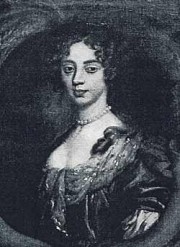
Goudge offers a highly sympathetic alternative interpretation of Lucy, born in Roch Castle in Wales. While there appears to be a valid controversy over the reliability of Lucy’s tarnished reputation, Goudge’s depiction struck me as over-the-top when it comes to Lucy’s purity and depth of character. She may well have had reason to believe her marriage to the king was legitimate, though he denied it more than once. The story depicts Lucy’s maid conspiring with the king’s confidantes to spread torrid rumors about her, and this too is possible. But the moral glow and high-toned spiritual sensibility Goudge gives her are somehow not very plausible.
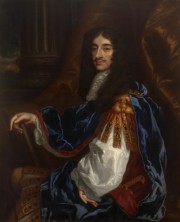
I read the book less out of interest in the subject, and more out of loyalty to the author. Yet the more I read of Goudge, the more torn I am about her. I love the attitude toward nature and place, and I am interested in the spiritual themes she takes up. But more and more her beliefs seem like a hodge-podge of Christianity and the occult, mysticism, even other quasi-religious elements. The Child from the Sea, ostensibly taking up the theme of forgiveness and prominently featuring an Anglican cleric who mentors Lucy, also implies reincarnation, mystical psychic connections between lovers (Lucy and Charles seem to have sort of a Heathcliff and Cathy connection), and visitations from the dead to impart wisdom when needed. Once, such wisdom is imputed to Christ, but often it is other characters that Lucy feels indebted to and has lost. “The great ones come back,” she tells her son firmly, and there is at least one character who seems to be a reincarnated martyr, appearing and disappearing mysteriously to dispense eerily personal counsel. (Aside: It was interesting to me to learn that one of Goudge’s books (The Rosemary Tree) was plagiarized by an author in India. The religion was changed to Hindu, and the setting was changed to India, but large chunks of the book were simply copied wholesale. It seems like this would be difficult to do if the book was pervaded by a distinctively Christian point of view.)
Part of my problem is that I picked the book up and put it down too many times, and this broke the continuity. Goudge apparently had the same problem. She lists this as one of her three favorites among the books she wrote, explaining in her autobiography The Joy of the Snow,
Further along the coast [of Pembrokeshire] is St. David’s Cathedral, one of the great shrines of the world, and further along still is Roch castle, where Lucy Walter, the secret wife of Charles II, was probably born and where she spent her early childhood. It was on my first visit to Pembrokeshire that I read a book about her written by one of her descendants. It is a rare book, now out of print, and giving a very different account of her from those given in the history books. It was lent to me by a friend who is one of the leaders in the fight to defend the beauty of Pembrokeshire from ‘modern development.’ She insisted that I must read it, and wanted me to write a novel about Lucy in keeping with this book. I had not got far with my reading before I was longing to write about this new Lucy, the girl of whom I was so conscious when I stood in the little church at Roch, beside the old font where she was perhaps baptized. And I wanted, too, to express the pent-up joy of the birds and the sea and the holiness of the Cathedral. That book, The Child from the Sea, like Green Dolphin Street, took years to write, and was beset by so many total interruptions that it too became too long. I doubt if it is a good book, nevertheless I love it because its theme is forgiveness, the grace that seems to me divine above all others, and the most desperate need of all us tormented and tormenting human beings, and also because I seemed to give to it all I have to give; very little, heaven knows. And so I know I can never write another novel, for I do not think there is anything else to say.
I did like importance of forgiveness in the story, and certainly the natural setting is depicted vividly and made me wish for the sea. (I quoted a passage here.) But there seem to be so many other elements thrown into Goudge’s spirituality that it’s jarring; I have trouble “losing myself” in the book.
It’s always disappointing when an author who seems like a potential favorite on first reading turns out not to be such a friend after all. How do you class authors? There are aspects of Goudge’s writing that just sing, aspects of her vision that I absolutely love, and they are consistent across her books. (I’ve read a fair number of them now.) But there are also distractions, beliefs and judgments I just cannot relate to, and these keep the endorsement from being truly wholehearted. She is an author I enjoy, one who can create a lovely fictional world, but not one that I trust as a guide in the deeper, persistent questions of faith and living.
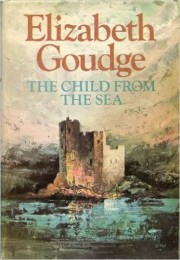
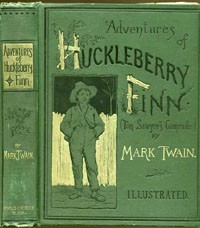

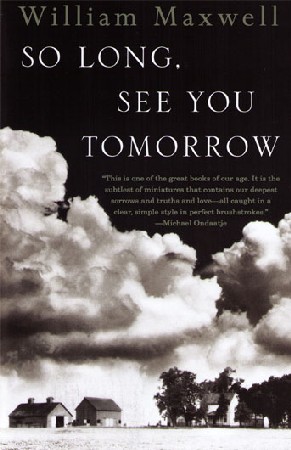
4 Comments
Sherry Early
“enjoy but not trust”
Yes, I agree. I can think of several other authors (Madeleine L’Engle, Rumor Godden, Daphne duMaurier) who fit that description: when they are good, they are very, very good, but sometimes . . . I haven’t read Child from the Sea, but I noticed some odd bits in Goudge’s other novels. Still, The Dean’s Watch and the Damerosehay trilogy that I just finished are really good.
Carol in Oregon
Janet. Janet. Janet. It has been a long time since a blog post struck such a resonating note with me. You captured and encapsulated my response to Elizabeth Goudge. Some of her books are so lovely and I feel this kinship, this drawing close to the author. But others leave me harrumphing or uneasily backing off. Thank you for articulating my thoughts so well.
Confession: I came to your blog because of your Wendell Berry book. I’ve stayed with your blog because of your thoughtful and penetrating book reviews. I’ve followed you for several years. But. I read the blog posts in an email. So many times I’ve responded mentally to what you’ve written but haven’t taken the time to click on the link and write a comment. It’s embarrassing to admit to that level of laziness.
Your post has sat open in my browser since Monday. I just had to thank you for it. Thank you.
Carol
Carol in Oregon
…and I especially liked the bit about the plagiarized novel. I had read about it, but had never made this connection:
“The religion was changed to Hindu, and the setting was changed to India, but large chunks of the book were simply copied wholesale. It seems like this would be difficult to do if the book was pervaded by a distinctively Christian point of view.)”
Janet
Thank you for the encouraging words, Carol! I see we’re kindred spirits about Elizabeth Goudge — as well as Wendell Berry. :-)